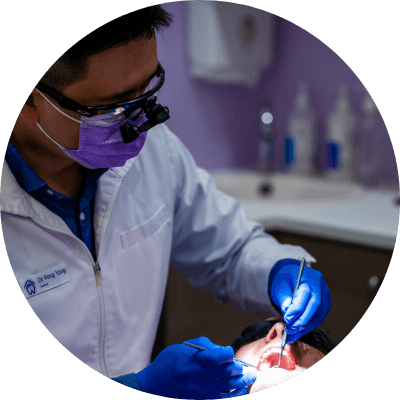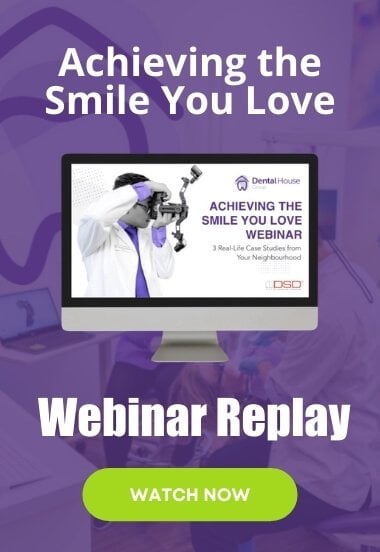Tooth Decay, Cavities & Periodontal Disease: Do They Cause Heart Disease?
Most certainly, untreated cavities can lead to periodontal disease but they’re not a precursor. Having the strongest, most healthy teeth doesn’t necessarily mean your gums are in good health.
For decades, researchers have explored links between cardiovascular, and gum health. Gum disease begins when sticky, bacteria-laden plaque builds up around teeth in a similar way that a different type of plaque – fat, cholesterol, calcium, and blood substances – can adhere to arteries. This fatty plaque is known as atherosclerosis and is the assertion of coronary disease.
Periodontal disease increases the body’s burden of inflammation, which is considered the instigator of so many chronic diseases. Acute inflammation over the short term creates immune cell production that attacks irritants and microbial invaders as a process of healing and becomes an exhausted and distorted system over the longer term of chronic inflammation.
The bleeding gums of gingivitis and periodontal disease can trigger the rare but serious heart condition, endocarditis.
Endocarditis is the result of infected gum bacteria being delivered to the inner lining of the heart. It affects the efficacy of heart valves and heightens the risk of heart attack. It happens via both direct and indirect mechanisms: periodontal pockets provide a direct entry point into systemic circulation for toxic bacteria; and the systemic response and vulnerabilities created by bacteria by-products. The C-reactive protein level (CRP) of blood is an accepted measurement of inflammation – elevated in periodontitis patients.
For more than a century there’s been the notion of an existing relationship between oral disease and systemic disease; at least since 1900 when Britain’s Dr William Hunter identified an oral sepsis link to other diseased organs of the body and termed it ‘focal infection’. It relied heavily on clinical cases where the extraction of infected teeth produced improvements in general health and were observations lacking in the rigor of modern science, but it is as relative a theory as those of Hippocrates all later medically quantified.
Hunter’s theory of focal infection was technically discarded, but it certainly lay the way open to further research.
Since the 1980s there’s been exponential increase in studies of systemic sympatico and whether an inflamed and unhealthy mouth is the source and spreader of debilitating diseases. Diabetes, adverse pregnancy outcomes, respiratory and kidney diseases, rheumatoid arthritis, cognitive impairment, obesity, metabolic syndrome and cancer are proving across both medical and dental research that there is commonality.
Hence the keen focus in recent years to effectively treat inflammation. There has been preliminary research on unique compounds called resolvins that shows promise for a topical liquid in the treatment of periodontitis and atherosclerosis and you can thank bunnies for that.
To connect oral and heart health, rabbits were fed cholesterol-rich diets to replicate human heart disease. Some were then infected with bacteria for periodontal disease. Atherosclerotic plaque quickly developed, high level inflammation showed up in their bloods, and they were treated with an oral resolvin liquid, derived from omega-3 fatty acids.
This treatment not only eradicated the periodontal bacteria and halted the disease, it also reduced the inflammation of atherosclerosis.
The findings highlight the potential to control one type of inflammation and control others.
Another study underway is testing a related compound called lipoxin in people with gum disease.
It has been accepted that periodontal disease increases the risk of heart attack and stroke, two-to-three fold but many people with heart disease have healthy gums, and not everyone with gum disease develops cardiovascular issues. There are shared risk factors like smoking and diet, with an estimated 20 million people dying from CVDs annually; accounting for about a third of all global deaths.
The recent joint workshop of the American Academy of Periodontology (AAP) and the European Federation of Periodontology (EFP) examined systemic disease links, and made key recommendations.
They included practitioners advising their patients of the emerging and strengthening evidence that periodontitis is a risk factor for developing acute cardiovascular disease; that sufferers of hypertension, obesity and smokers who have not seen a GP for more than 12 months should be referred to their medical practitioner.
Modifiable lifestyle risk factors for periodontitis (and therefore also ACVD) should be addressed in dental practices in the context of comprehensive periodontal therapy. It can bring health gains beyond the oral improvements.
Daily brushing and flossing prevents, and can even reverse an early stage of gum disease (gingivitis) just as a change of diet can reverse diabetes. If your dentist says you have gingivitis, ask for a brushing and flossing demonstration to ensure you’re spending enough time and taking enough care – between your twice-yearly professional dental clean and check-up.
Evidence for causality may soon be revealed as more studies definitively show a temporal sequence; the presence of periodontitis results in a subsequent increase in the frequency of a systemic disease.
Meanwhile, take it as given; be ahead of the times and look after your teeth and gum health as if your heart depends on it.
Note: All content and media on the Sunbury Dental House website and social media channels are created and published online for informational purposes only. It is not intended to be a substitute for professional medical advice and should not be relied on as health or personal advice.
Services Mentioned
Related Articles
Some Sweet News For Diabetes Sufferers With Gum Disease
Diabetes type 2 is a scourge for sufferers and those with it know that well. Here is some sweet news for diabetes sufferers with gum disease. A new study performed at the University of Buffalo School of Dental Medicine made some helpful findings in this regard. The...
Can Gum Recession Be Fixed With Dental Bonding?
Gum Recession Fixes: Can gum recession be fixed with dental bonding? In some cases it can help and it is well worth a discussion with…
Bruxism In Children: Is It Influenced By Screen Time And Sugar?
Children gnashing & grinding their teeth asleep in bruxism – a scene from a horror movie. Overstimulation of sensitive minds…
Let The New Year Bring New Commitment To Your Oral Care
If you can be inspired to make one new year’s resolution this year let it be for your dental health. Let the New Year bring new commitment to your oral care in 2024 and beyond. This is no mere dentist’s selfish wish but a call for an understanding about just how...















